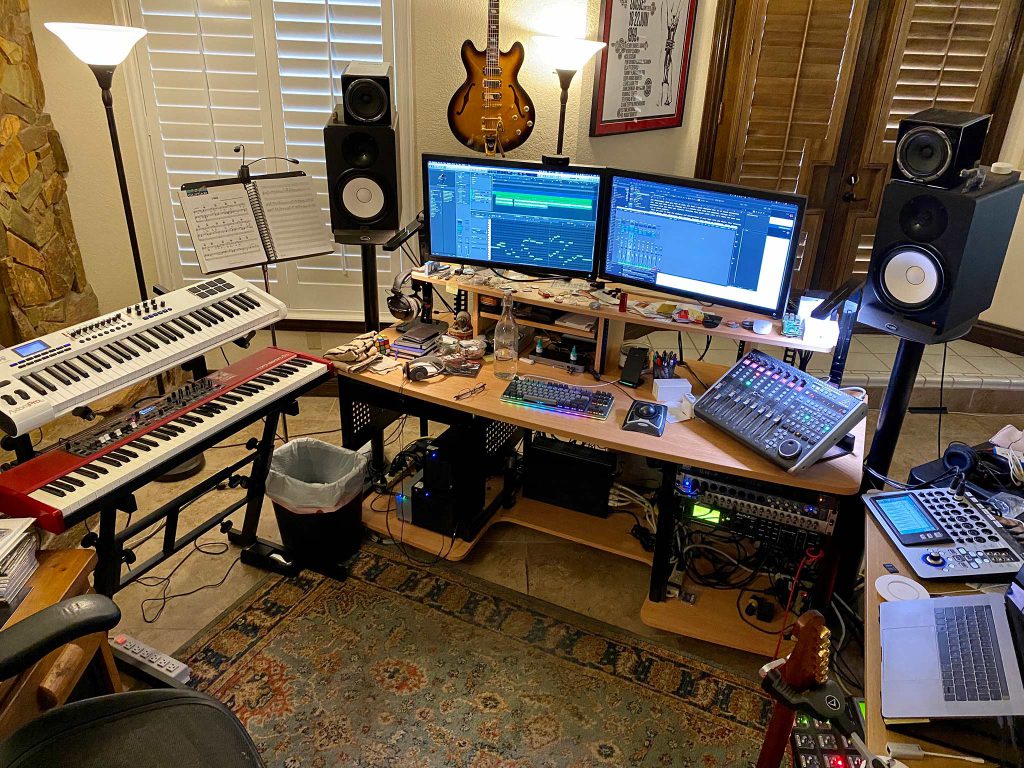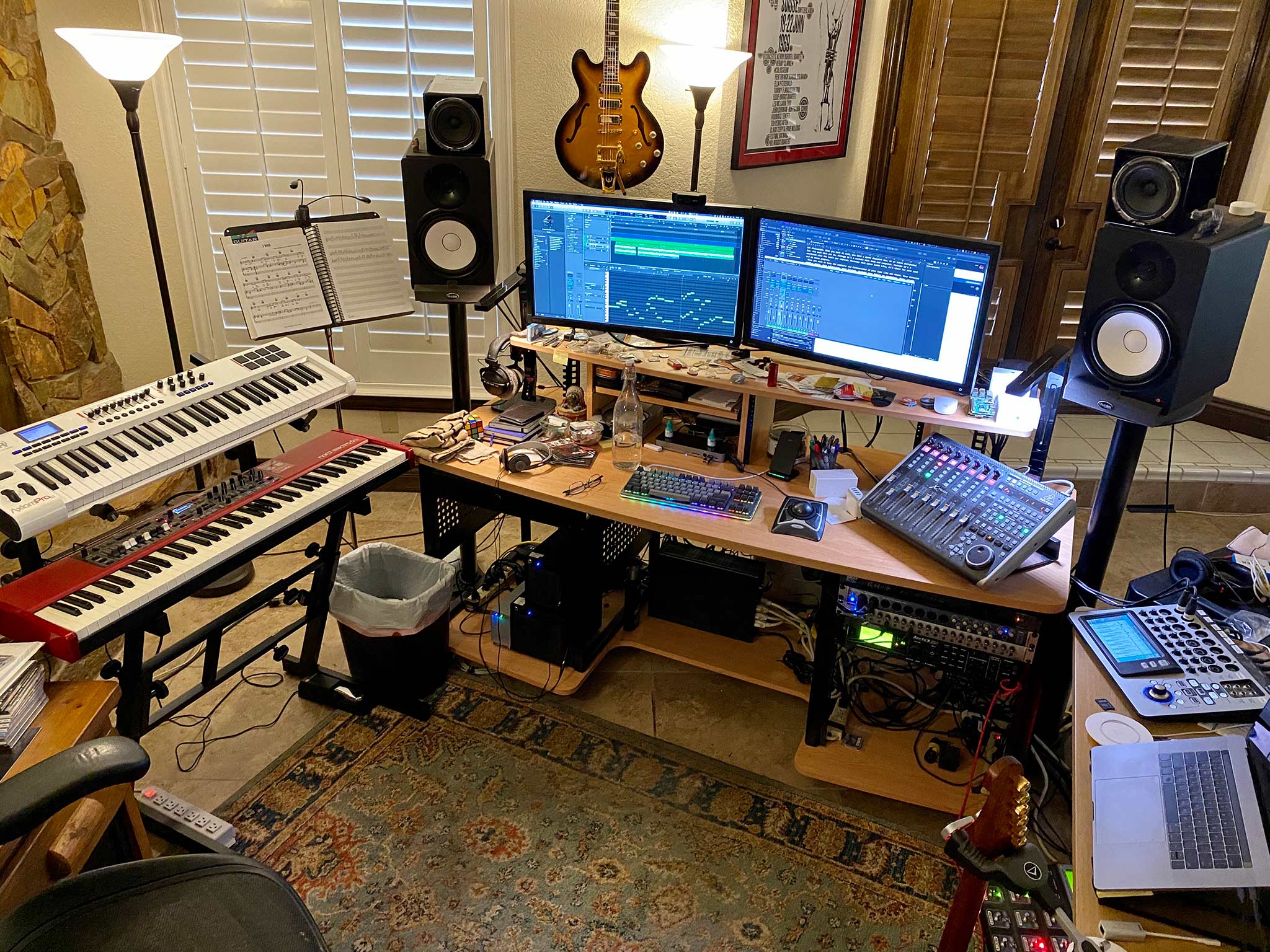For many people in our modern world, Home and Work represent two separate places. Home is the place you live and Work is the place you work. This has been changing for a while, and in the wake of the recent pandemic, that change has accelerated. For a rapidly growing number of people, Home and Work are no longer separate locations.
If you’re not accustomed to working from Home you will quickly discover that it presents its own set of challenges. When you work at Work, you have a space designed for — or at least designated for — the tasks of your job. Perhaps it’s a cubicle with desk and computer. Perhaps it’s a workbench with the tools you require. Whatever that space looks like, it’s there for your work and no other purpose.
When you work at Home the comforts and distractions of your home life are there. Your favorite reading chair. Your television. Your kitchen. Perhaps your family or roommates. These things are part of your home life and not your work life. If you’re new to working at Home you may find these things draw you away from your work and that may be a problem.
I’ve worked in my home most of my life. I began my work life as a musician and went on to develop electronic musical instruments from a home electronics lab. Eventually I became a software engineer and spent many years developing software from a home office. Today I write and record videos teaching computer languages, and write and produce music, and I still do all of this from my home.
From all of these years of experience I offer a few tips for those of you who are new to the experience of working from home.
Create a Workspace
One of the advantages of working at Work is having a space set aside for you to perform your specific tasks. Whatever that requires, a desk and computer, a workbench and tools, or a piano and music stand, a dedicated workspace is essential for good productivity. Establish a space in your home for those activities and equip that space for your needs.
A distinct space for your work encourages focus and discourages distractions. Set your workspace apart from your living space as much as possible. When I was younger I lived in a small studio apartment where my workspace was inches from my living space. Today I live in a house with a separate room for work. Whatever your space looks like, try to separate the space as best you can.
Your workspace should have everything you need for your day-to-day tasks. For most of us that will include a desk, a chair, and a computer. For some it will include other tools of your craft, a drawing table, musical instruments, an oscilloscope, or perhaps a soldering iron.
My work is mostly technical writing and producing music, so my workspace includes a powerful computer with a good keyboard for typing and a trackpad for production, two screens, a small mixing console, studio monitors, guitars, drums, a piano, and a MIDI keyboard. Your workspace may be simpler or more complex. For many it may be a simple laptop on a desk. Just make sure it includes what you need to do your job.
Establish a Routine
A good routine is essential for good productivity. Without a routine it’s too easy for the days to slip away without accomplishing what you need. Your routine should include the things that make you happy and healthy.
Do not neglect self-care. When you work at home it’s too easy to roll out of bed, grab a cuppa, and sit down at your desk. This can quickly lead to burnout. What self-care means will be different for each of us. For me, it means getting enough sleep, taking time in the morning for meditation, exercise, and grooming, breakfast and social media.
Don’t neglect your end-of-day routine. This is important for your mental health. At the end of my work day I make sure I have time to enjoy an evening meal and wind down with some socializing or teevee or a good book before retiring for sleep.
Keep a Schedule
Closely related to your routine is keeping a schedule. Some jobs may require you to keep certain hours so you’re available for co-workers and/or customers. Other jobs, like mine, do not have that requirement which makes it easy to forget about schedule entirely. I need a schedule anyway and I strongly recommend you keep one too.
Your schedule may include things like meals, breaks, family and friends, recreation, social media, and start- and stop-times for work. Be sure to schedule enough time for work, but prioritize the things that make your life worthwhile.
I’m fairly introverted so I find that prioritizing time with family and friends helps to keep me sane. Otherwise it’s easy for me to forget that I’m part of a larger world. My schedule looks something like this:
- 2 hours for morning routine: meditation, exercise, shower, groom and dress, breakfast
- 1 hour for morning social media, email and phone calls
- 2 hours work (usually writing in the morning)
- 1 hour for lunch and some teevee, reading, or listening to music
- 1 hour for afternoon social media, email and phone calls
- 4 hours work (writing, music, recording, or building guitars)
- Evening meal, socializing, entertainment, sleep
Notice that I have scheduled time for those things that I enjoy in life. Of course, I enjoy my work — I’m blessed to have work that feeds my passions. But I make sure I schedule time for the things that recharge me, and feed my health and happiness.
Set Boundaries
When you work at Home it’s critical that you establish boundaries with the other people in your life, especially if you live under the same roof. Your family, roommates, friends, and others in your life must know that you require time and space for work, even though you’re home. Your schedule will help with this as you establish specific working hours.
When I was younger and had roommates I installed a light socket above the door to my workspace and put a red lightbulb in it. I would turn on the red light when I was not to be disturbed. For many people a simple hand-written sign will suffice. (I gravitate toward elaborate technological solutions to simple problems. It’s a bug in my programming.)
Go Outside
Finally, make sure you get out of the house now and then. As I write this, much of the world is in quarantine for a viral pandemic. Hopefully, by the time you read this, that will be a historical footnote and you are free to get out of the house, socialize with friends, attend a concert, or go to the movies. Now and then, just go out for a walk or a hike and get some fresh air.
A change of scenery can be important to maintaining a healthy balance with your work life. When you work at Work that happens naturally, as you travel from Home to Work and back again. When you work at Home you’ll need to schedule time to get out and acclimate with the rest of the world. I find this important for my health and well-being.
Likewise, make sure you schedule days off and holidays. There are times when I’m on a deadline and I need to work seven-day weeks. But most of the time I make sure I set aside the weekends for family and recreation. This helps keep my work in balance with my life.
Enjoy your work and your life
I hope these suggestions are helpful as it becomes more common to work from home. Over the many years I’ve been working from home, these are the disciplines I’ve found useful. Over time you’ll find what disciplines are effective for you.



